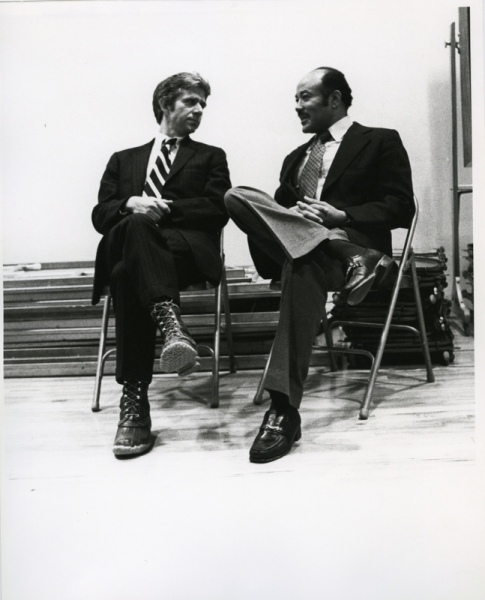In its first forty years, the Afro-American Studies program had five permanent directors each of whom faced their own obstacles while contributing to the program’s development and evolution. Retention of a director itself was a major issue—it was difficult to attract black scholars to Maine, where the black community has always occupied a sliver of the state’s population. And because the program could only support one professor, it was challenging to develop a community of black scholars.
Non-Reappointment
The program’s third director, John Walter (right), who arrived in 1976, was a history professor and a well-liked mentor among members of the African American Society. He secured funding for two endowed lecture series which still bring prominent black scholars and artists to campus. Within two years of his arrival, he was surrounded in controversy. Unbeknownst to the program, the Dean of Faculty Affairs and the History department, where his courses were cross-listed, initiated uations of Walter’s teaching and ultimately decided to let him go. The Committee on Afro-American Studies (CAAS) delivered an impassioned speech at a Faculty meeting in an effort to persuade the College not to let Walter go—not only because their own uations of Walter found him a sound and respected professor and mentor to many students, but also because CAAS already struggled to attract black scholars to Bowdoin in the first place. The College did not heed CAAS’ request that they conduct another uation, and Walter was let go.
